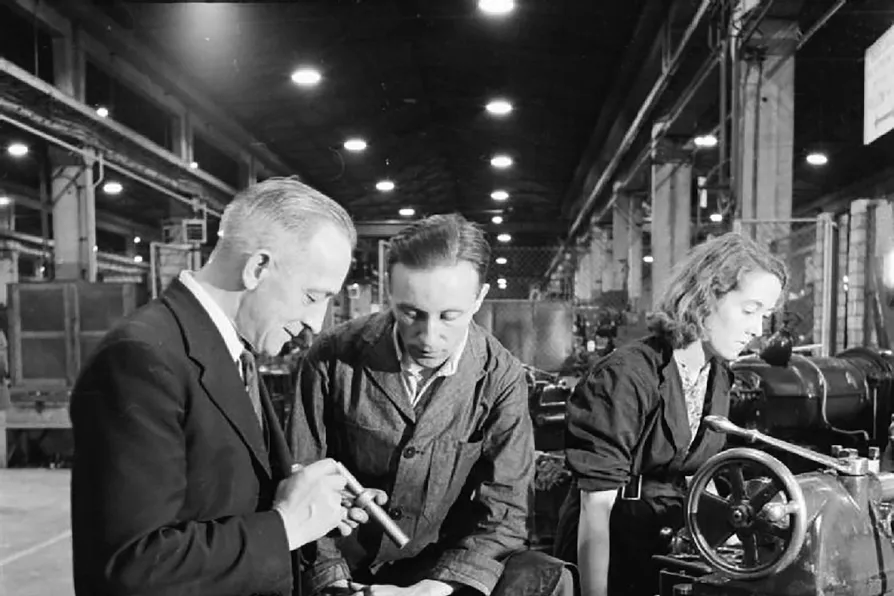This weekend, the NEU holds a special conference to debate changing its approach to organising teaching assistants, which a 2017 TUC agreement forbids. General secretary DANIEL KEBEDE outlines the choices before delegates

 INDISPENSABLE: Shop steward Richard Sainsbury (centre) confers with foreman Henry Howard over the problem raised by Megan Beynon at the turning machine, 1942
[Mol Photo Division Photographer / Public Domain]
INDISPENSABLE: Shop steward Richard Sainsbury (centre) confers with foreman Henry Howard over the problem raised by Megan Beynon at the turning machine, 1942
[Mol Photo Division Photographer / Public Domain]
IN 1917, as the first world war raged on, JT Murphy of the Sheffield Workers’ Committee wrote a passionate pamphlet calling for radical change in the trade union movement. More than a century later, his searing manifesto remains powerfully relevant.
At the heart of Murphy’s vision was the need for genuine power and democracy for ordinary union members. He saw that while officials spoke about representing workers, it often felt like real control lay in the hands of distant bureaucracies.
The vital first step was therefore to empower the grassroots. “The initiative should be taken by the workers in the various districts,” Murphy wrote. “It is immaterial whether the first move is made through the local trade union committees, or in the workshops and then through the committee, so long as the stewards are elected in the workshops and not in the branches.”

KEVIN COURTNEY of Stand Up to Racism and JOHN PAGE of the Ella Baker School of Organising announce a joint project aiming to unite trade unions and social movements in creating new narratives to fight the divisive rhetoric of the far right

LAURA PIDCOCK and PAUL O’CONNELL introduces Rise, a political platform for working-class activism

This ‘Big Meet’ our focus is building the next ‘Megapicket,’ say HENRY FOWLER and GAWAIN LITTLE of the General Federation of Trade Unions

PHIL KATZ describes the unity of the home front and the war front in a People’s War










